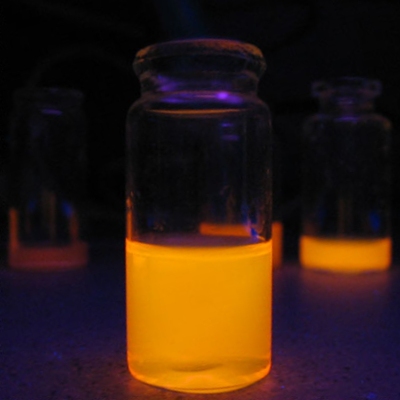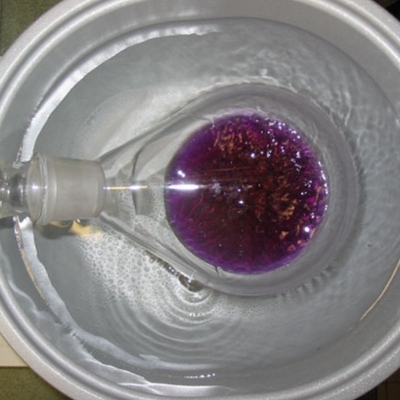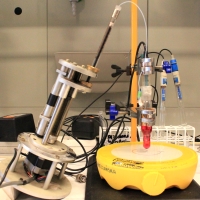Research topics
Master's and diploma thesis topics
Proposed master's and diploma thesis topics in the Department of Analytical Chemistry
 Ph.D., Iwona Dąbkowska
Ph.D., Iwona Dąbkowska
Modeling redox processes of neurotransmitters. The prediction by quantum-chemical methods of the properties of biologically important molecules. Studying mechanisms of DNA damage at the molecular level. Dissociative electron attachment. Prototropic tautomerism induced by excess electrons. Unusual anionic systems.
 Ph.D., D.Sc., Beata Grobelna, Prof. UG,
Ph.D., D.Sc., Beata Grobelna, Prof. UG,
The research topics mainly concern the chemistry and analytics of cosmetic products. Preparation of new formulations of cosmetic products, testing the permeability of active substances and the degree of hydration of the skin with the help of apparatuses available in the laboratory. Synthesis and study of the spectroscopic properties of new luminescent materials (based on lanthanide ions or organic fluorophores) obtained in solid form and as thin films.
 Ph.D., D.Sc., Paweł Niedziałkowski
Ph.D., D.Sc., Paweł Niedziałkowski
The topics of master's and diploma theses carried out under my supervision currently focus on the synthesis of nanomaterials, which at a subsequent stage are used to create sensors or electrochemical biosensors. The measurement of electrochemical detection is based on the analysis of single molecules or obtaining aptasensor-based biosensors, immunosensors or sensors using peptides. The research is performed using commercially available electrode materials (gold electrode, glassy carbon (GC) electrode, boron-doped diamond (BDD) electrode) and new electrodes obtained by 3D printing technology.
 Ph.D., D.Sc., Grzegorz Romanowski, Prof. UG,
Ph.D., D.Sc., Grzegorz Romanowski, Prof. UG,
The research topics include the synthesis of new chiral homo- and heterogeneous catalysts based, among others, on vanadium(V) and molybdenum(VI) complexes with optically active Schiff bases and their reduced forms. In addition, X-ray studies are carried out to determine their molecular and crystal structures, as well as spectroscopic characterization using IR, VCD, UV-Vis, circular dichroism, and one- and two-dimensional NMR techniques. The obtained catalysts are also studied for their catalytic abilities in model sulfoxidation reactions of prochiral organic sulfides, as well as oxidation reactions of alkenes and monoterpenes.
 Ph.D., Anna Wcisło
Ph.D., Anna Wcisło
Investigation of intermolecular interactions using various physicochemical methods. Characterization and modification of the surface of materials by the wetting angle measurement technique. Application of electroanalytical methods and wettability measurement in the aspect of developing sensors and biosensors.
 Ph.D., Dorota Zarzeczańska
Ph.D., Dorota Zarzeczańska
The main research topics concern the acid-base properties of organic compounds and modified electrode surfaces ( spectroscopic and electrochemical methods). Redox active compounds such as derivatives of anthraquinone and other quinones facilitate electron transfer, so their electrochemical properties are studied in solution, on the surface of solid electrodes and in polymeric thin films deposited on electrode surfaces. The research is designed to develop optimal modification conditions and study the electron transfer process in terms of their use in controlling biochemical processes.




